Introduction
Do Guinea Pigs Hibernate: Guinea pigs, those delightful and charismatic rodents, have long been cherished as pets by animal lovers around the world. Their charming personalities, distinctive vocalizations, and adorable appearances make them endearing companions. Yet, despite their popularity, there remains a curious crosses the minds of guinea pig enthusiasts and inquisitive individuals alike. Hibernation is a phenomenon observed in various animals, particularly during the colder months, when they enter a state of dormancy characterized by drastically reduced metabolic activity, lowered body temperature, and prolonged periods of inactivity.
This survival strategy helps conserve energy when food is scarce and temperatures are too extreme for them to thrive actively. It comes to guinea pigs, the notion of hibernation may seem puzzling, considering their tropical and subtropical origins in South America. To demystify this intriguing aspect of guinea pig behavior, we embark on a journey of exploration and discovery. By delving into their natural history, biology, and behavioral patterns, we seek to unravel the mystery surrounding guinea pigs and hibernation.
The factors that contribute to the misconception that guinea pigs hibernate, shed light on their unique adaptations to their environment, and clarify how they cope with temperature fluctuations. A comprehensive understanding of guinea pigs and their response to environmental changes, ultimately offering valuable insights for both current guinea pig owners and those considering sharing their lives with these delightful creatures. So, let’s embark on this illuminating journey to uncover the truth about whether guinea pigs hibernate or not, shedding light on one of the many captivating aspects of their lives.
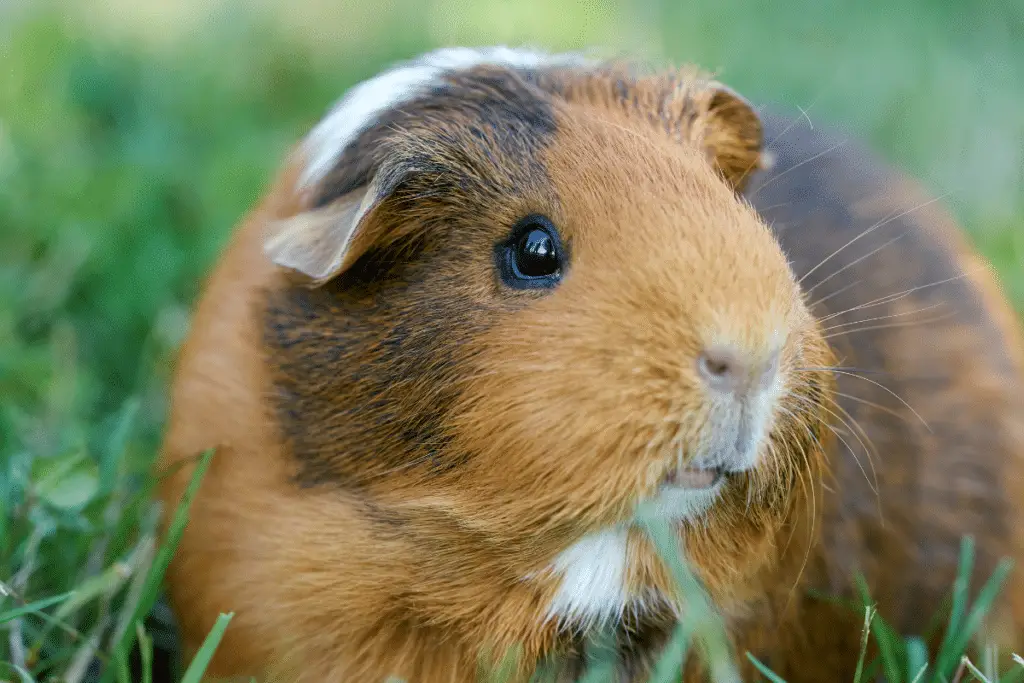
How do I know if my guinea pig is hibernating?
We know guinea pigs don’t hibernate, but they can go into torpor. If piggies are left to live in a very cold environment, their hoomans could find them sleeping very deeply one day. If you spot a piggy who seems fast asleep in colder weather, you can try to warm them up and see if they’d wake up slowly.
Guinea pigs in torpor will appear unusually lethargic. They may be less active, and their movements will slow down significantly. You may notice that your guinea pig feels much colder than usual when you touch them. Their body temperature drops during torpor. Their breathing may become slower and shallower, which can be mistaken for a more serious health issue if not recognized as torpor. Guinea pigs in hibernation or torpor will eat less or even stop eating altogether during this period.
If the room is excessively cold, your guinea pig might be entering torpor as a response to low temperatures. Ensure that the room is adequately heated to prevent this. True hibernation can last several days or even weeks. If your guinea pig’s unusual behavior persists for an extended period, it’s likely a health issue, and you should consult a veterinarian.
This is a survival mechanism that helps guinea pigs conserve energy during cold weather. Guinea pigs are not as prone to hibernation as, say, hedgehogs or bears, it can still happen if they are exposed to extremely low temperatures.
Why is my guinea pig not moving?
Not eating, not moving and decreased fecal production are all considered non-specific signs of disease. What that means is that any disease can lead to the signs you are seeing in your guinea pig. This could be dental disease, liver disease, kidney disease, cancer, toxins, infection — the list just goes on.
One of the most common reasons for a guinea pig’s decreased activity is illness or injury. Guinea pigs are small and fragile animals, and various health issues can affect their energy levels. Respiratory infections, dental problems, gastrointestinal troubles, or musculoskeletal injuries can all lead to lethargy and inactivity. If you suspect illness or injury, it is crucial to consult a veterinarian experienced in treating guinea pigs. Prompt medical attention can make a significant difference in their recovery.
Guinea pigs are sensitive animals that can become stressed or frightened by changes in their environment. New noises, sudden movements, the presence of unfamiliar animals, or a lack of hiding spots can all cause stress in guinea pigs. Ensure that your guinea pig’s habitat is free from sudden disturbances and provides hiding spots for them to retreat to when they feel threatened. Additionally, spend quality time with your pet to build trust and reduce their stress levels.
As guinea pigs age, they may naturally become less active. Senior guinea pigs tend to move less and sleep more than their younger counterparts. If your guinea pig is older, make sure their diet is appropriate for their age and monitor their health closely. Regular with a veterinarian can help manage age-related issues.
What do guinea pigs do in the winter?
Guinea pigs are likely to spend more of their time in their cosy sleeping areas and hiding spaces over the winter months, so make sure you do daily spot cleans to remove and replace any dirty bedding. This will help your piggies to stay comfortable and warm, whilst also helping to prevent health problems.
Guinea pigs are not well-suited to cold temperatures. In the wild, they originate from warmer climates, so they do not have the natural ability to hibernate like some other animals. Therefore, during the winter months, it’s crucial to keep them indoors where they can maintain a comfortable temperature.
Guinea pigs thrive at temperatures between 65-75°F (18-24°C). To ensure they remain warm and healthy during the winter, it’s essential to provide a consistent and warm indoor environment. Avoid placing their enclosure near drafty windows or doors.
Guinea pigs appreciate a cozy and well-insulated living space. During the winter, consider adding extra bedding, such as hay or fleece, to provide insulation from the cold floor. Fleece blankets or cozy hides can also give them places to snuggle and stay warm.
With shorter daylight hours in the winter, consider providing extra artificial lighting to ensure your guinea pigs get enough exposure to light. A consistent light schedule can help regulate their internal clocks and maintain their usual activity patterns.
What happens if guinea pigs get too cold?
Young guinea pigs are especially vulnerable, as they cannot control their body temperatures like adults can. Guinea pigs handle cold much better than heat, but being too cold still causes them significant discomfort and stress. They can become sick or even die if they are too cold for too long.
The most immediate and severe consequence of guinea pigs getting too cold is hypothermia. When their body temperature drops significantly below the normal range of 99-103°F (37-39°C), it can lead to hypothermia. Symptoms may include shivering, lethargy, a hunched posture, and cold extremities. If you suspect your guinea pig is experiencing hypothermia, immediately warm them up by placing them in a cozy, insulated area at room temperature. Wrap them in a warm towel or blanket, and consult a veterinarian as hypothermia can be life-threatening.
Exposure to cold temperatures can weaken a guinea pig’s immune system, making them more susceptible to respiratory infections. Symptoms may include sneezing, coughing, nasal discharge, and labored breathing. Keep your guinea pig’s living space at a consistent and comfortable temperature to prevent respiratory issues. Ensure they are dry and avoid drafts.
Guinea pigs that are too cold will become lethargic and lose interest in eating. A decrease in activity and appetite can lead to weight loss and other health problems. Maintain a warm environment to keep your guinea pig active and encourage eating. Offer warm, fresh hay and vegetables to entice them to eat.
Do guinea pigs need baths?
Bathing your guinea pig is not only essential to his well-being, it is also an excellent way for you to build a trusting relationship. You should bath your guinea pig at least every two months, or more often if his coat is looking particularly oily.
In general, guinea pigs do not require regular baths like some other animals, such as dogs or cats. Guinea pigs are skilled self-groomers, and they typically keep themselves clean by using their teeth and tongues to groom their fur. Their grooming habits help to maintain their coats and keep them in good condition.
If your guinea pig has a medical condition that affects their ability to groom themselves, such as arthritis or obesity, they may need assistance with cleaning. In such cases, consult with a veterinarian for guidance on how to proceed.
If your guinea pig develops a skin issue or gets something sticky or harmful on their fur, a gentle bath may be necessary to remove the substance and promote healing.
Some guinea pig owners who participate in guinea pig shows may give their pets a bath before a competition to ensure they look their best. However, this should be done infrequently and with care.
Why is my guinea pig sitting still?
Other ways this type of stress shows is where a guinea pig will hide until you have left the room to come out to eat or drink. They will sit still and very quietly and patiently wait for you to leave.
Guinea pigs, like all animals, need time to rest and relax. Just as humans need to sit or lie down to recharge, guinea pigs may choose to sit still or lay down to rest. This is perfectly normal behavior. Allow your guinea pig to rest undisturbed when they choose to do so. Provide them with a comfortable and quiet space where they can relax.
Guinea pigs are naturally curious animals, and sometimes they sit still to observe their surroundings. They may be watching for potential threats or simply taking in their environment. Ensure that your guinea pig’s habitat is stimulating and safe, with plenty of hiding spots and toys to keep them engaged.
When guinea pigs feel safe and content, they may sit still as a sign of trust in their environment and their owner. This is a positive indicator of their comfort. Continue providing a loving and secure environment for your guinea pig. Spend quality time with them to build trust and strengthen your bond.
Do guinea pigs like the dark?
They could be up at two in the morning running around with each other, or asleep at eight in the morning and up again an hour later. It’s safe to say that guinea pigs enjoy the dark at least, but we’d even go as far as to say they prefer the dark!
In their native habitat of South America, guinea pigs are crepuscular animals, which means they are most active during the dawn and dusk hours. They have adapted to low-light conditions in the wild, so they are not inherently afraid of darkness.
In an indoor setting, guinea pigs do not experience the same light patterns as they would in the wild. Guinea pig have a consistent light schedule, with periods of light during the day and darkness at night to mimic a natural day-night cycle. Guinea pigs do not require complete darkness, but they benefit from a regular light schedule. Ensure your pets receive 12-14 hours of light and 10-12 hours of darkness each day, which helps regulate their circadian rhythm.
Guinea pigs are prey animals, which makes them naturally cautious and sensitive to changes in their environment. Sudden darkness or bright light can startle or stress them. Provide a gradual transition from light to darkness in their living space by using a dimmer or turning off lights gradually as evening approaches. This helps prevent sudden changes that could stress your guinea pigs.
Do guinea pigs get cold at night?
Some rodents, like ground squirrels or Eastern chipmunks, hibernate when the weather turns cold, but guinea pigs don’t. Instead, guinea pigs are most comfortable in air temperatures of about 65°F to 75°F. Anything below about 60°F is probably too cold for your pig.
Guinea pigs are native to the Andes Mountains in South America, where the climate is generally mild and temperatures remain relatively stable year-round. As a result, guinea pigs are sensitive to extreme temperature fluctuations, especially cold temperatures.
Guinea pigs are sensitive to cold temperatures and can suffer from cold stress if exposed to prolonged cold conditions or extreme cold. Their ideal ambient temperature ranges from 65-75°F (18-24°C).
Many regions experience cooler temperatures at night, even during warmer seasons. This nighttime temperature drop can affect guinea pigs if they are not adequately protected from the cold.
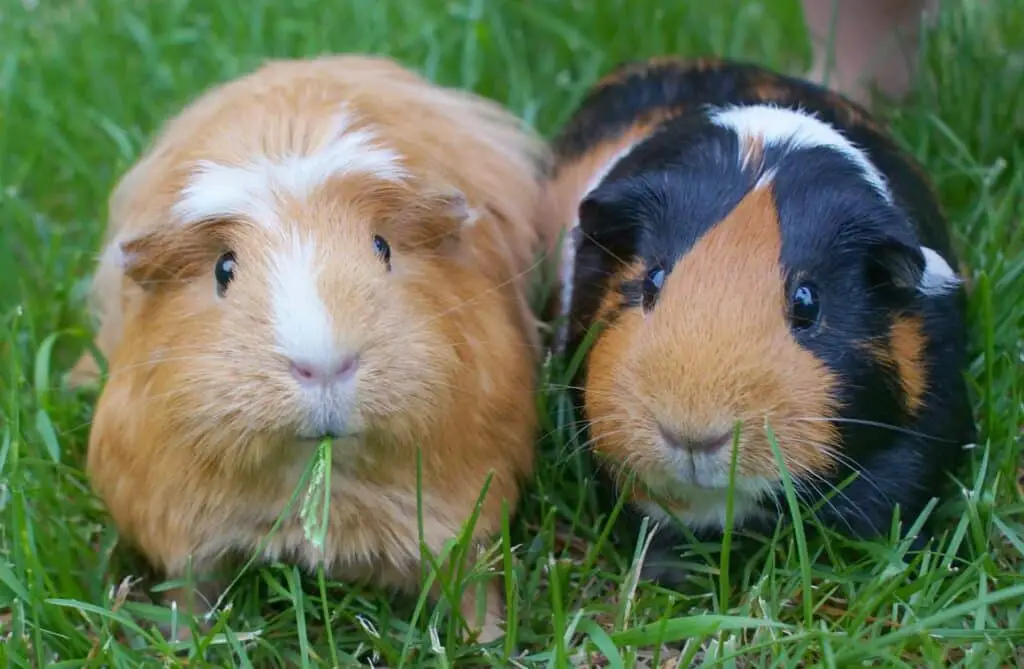
Conclusion
Guinea pigs hibernate has been thoroughly explored, shedding light on the fascinating aspects of their natural behavior and biology. After discovery, we can definitively state that guinea pigs do not hibernate. Instead, they exhibit a consistent and active lifestyle throughout the year, regardless of seasonal changes. The misconception that guinea pigs hibernate may stem from a misunderstanding of their evolutionary history and native habitats. Guinea pigs originally hail from the tropical and subtropical regions of South America, where they are adapted to a relatively stable climate with moderate temperatures pigs hibernate year-round. Unlike many animals in temperate or polar regions, guinea pigs did not need to develop hibernation as a survival strategy to endure harsh winters or periods of food scarcity.
Guinea pigs are, in fact, highly active and social animals. They rely on a steady intake of food to maintain their metabolic needs, body temperature, and overall well-being. Therefore, it is crucial for guinea pig owners to provide a consistent supply of fresh food, clean water, and a comfortable environment, regardless of the season, to ensure their pets’ health and happiness. Understanding that guinea pigs do not hibernate underscores the importance of responsible pet ownership. Guinea pig enthusiasts should be prepared to provide consistent care and attention to these delightful rodents year-round. This includes maintaining a suitable living environment, offering a balanced diet, and providing opportunities for exercise and social interaction.
This intriguing topic, we have not only dispelled a common misconception but also gained a deeper appreciation for the unique nature of guinea pigs. Their lively, non-hibernating lifestyle makes them wonderful companions that offer joy, companionship, and endless opportunities for bonding with their human caretakers. We encourage both current and prospective guinea pig owners to embrace the truth about their pets’ behavior and to provide the love and care that these charming rodents deserve throughout every season of the year. Guinea pigs may not hibernate, but their lively presence is a source of warmth and delight that can brighten the lives of those fortunate enough to share their homes with these endearing creatures.

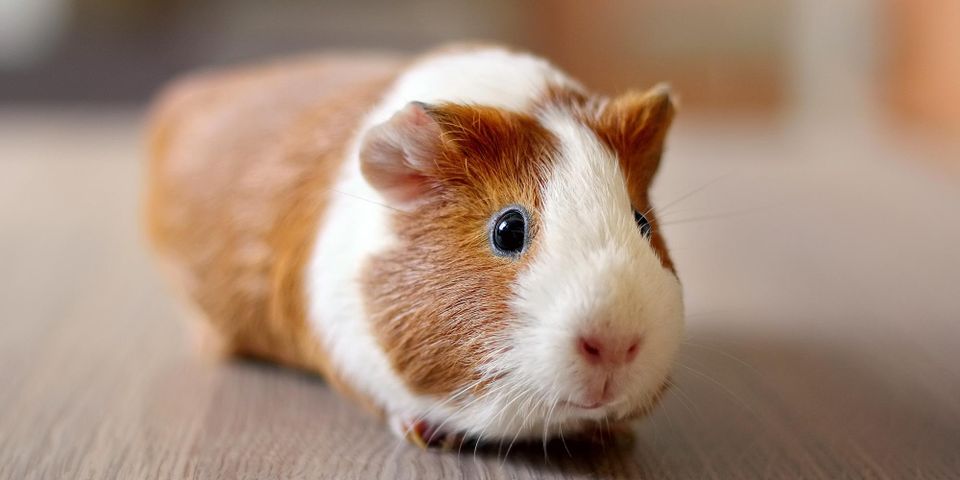
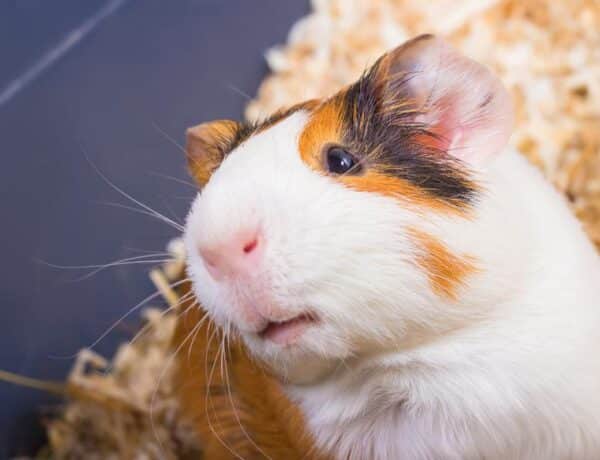
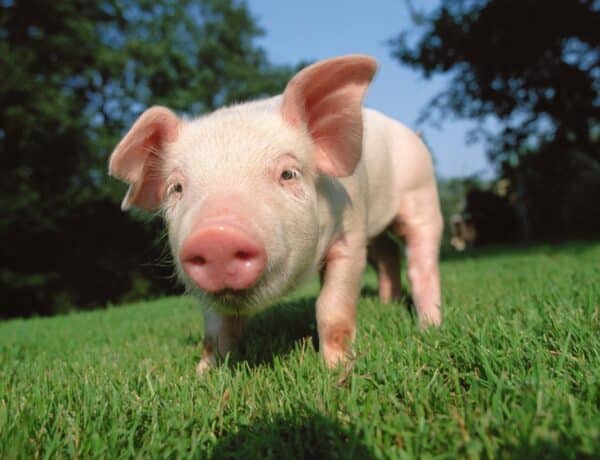
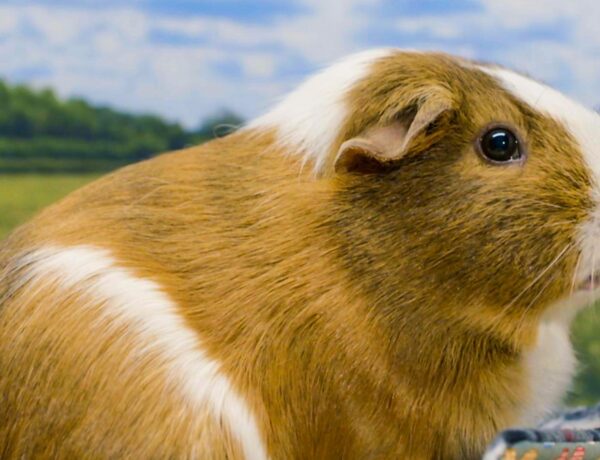
No Comments